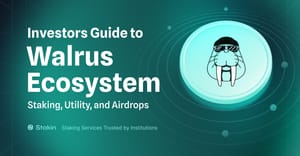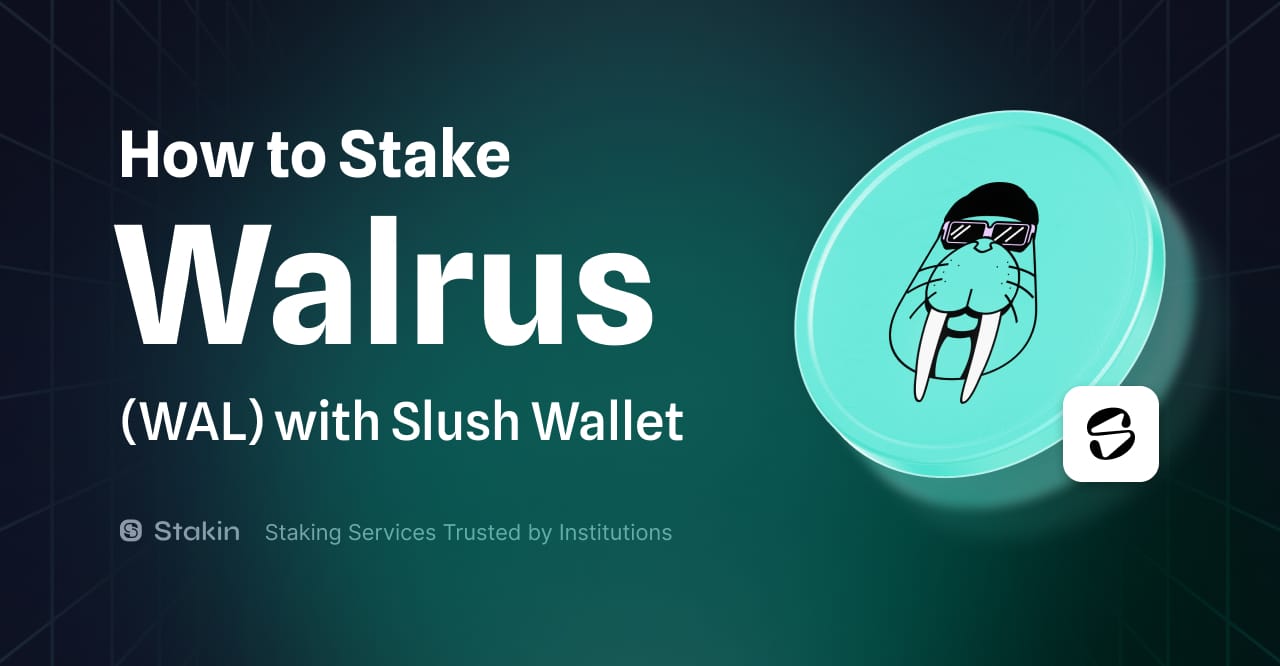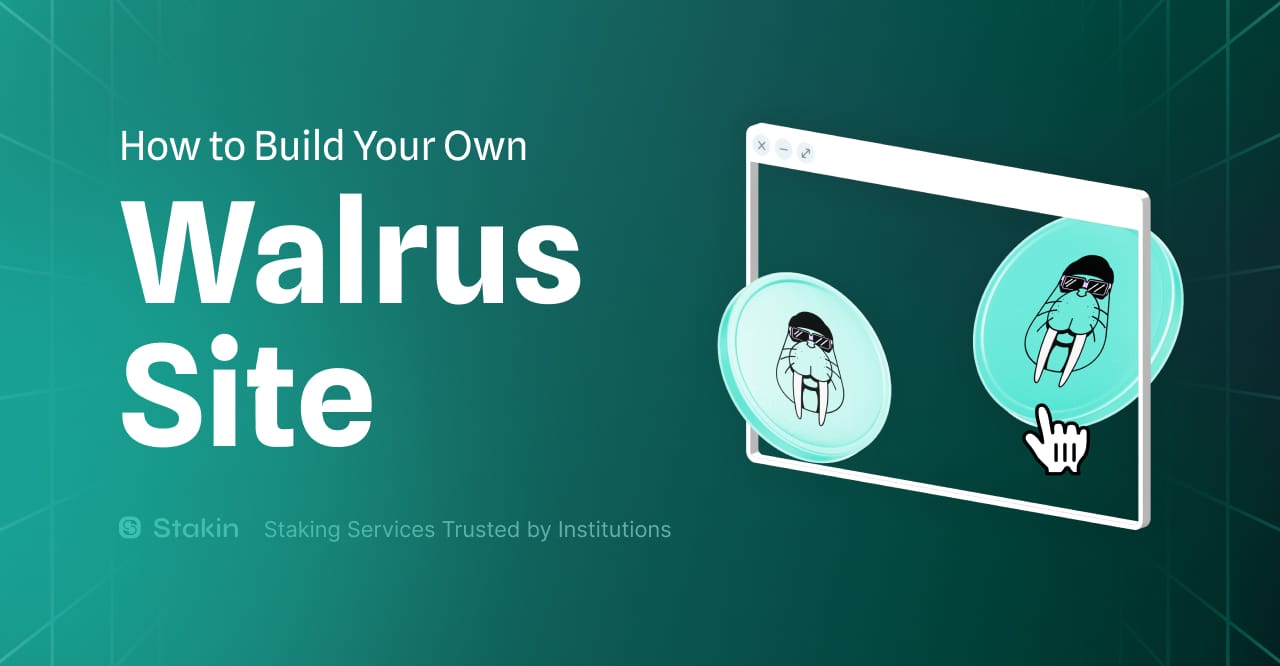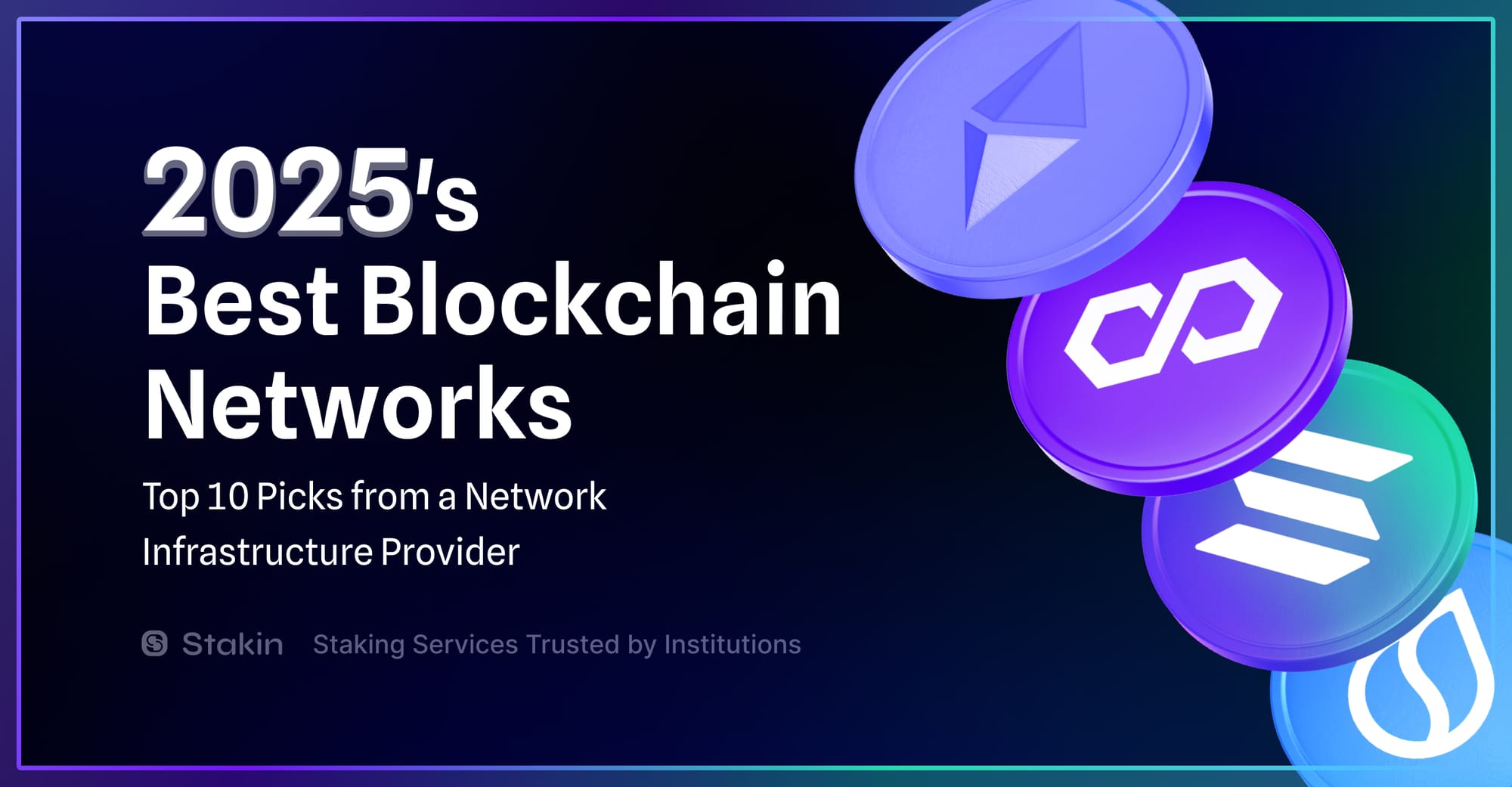What Is Walrus?
Walrus is a decentralized data storage protocol developed by Mysten Labs and built on the Sui blockchain. Designed for Web3-native applications, Walrus offers scalable, fault-tolerant, and cost-efficient storage for large, unstructured data.
Unlike traditional centralized cloud storage or decentralized platforms that rely on full data replication, Walrus leverages erasure coding to optimize efficiency. With Walrus, developers can access secure, decentralized storage at significantly lower costs, unlocking new possibilities for Web3 infrastructure on Sui.
Why Walrus Has Strategic Value
- As the Web3 ecosystem matures, decentralized applications increasingly require storage solutions that offer performance and cost-efficiency on par with centralized providers, without sacrificing decentralization. Walrus addresses this demand with a cutting-edge storage protocol that is scalable, reliable, and aligned with the principles of blockchain.
- Backed by Leading Investors, Walrus has attracted significant support from top-tier venture capital firms. In March 2025, the Walrus Foundation raised $140 million in a private token sale of its native token, $WAL. The round was led by Standard Crypto and included participation from prominent investors such as a16z crypto, Electric Capital, and Franklin Templeton Digital Assets. This strong backing underscores growing industry confidence in Walrus’s potential to become a foundational layer for decentralized data storage.
- Decentralized Architecture on Sui, Walrus operates by distributing data across a global network of nodes, each competing for stake from users, incentivizing performance and availability. Built natively on the Sui blockchain, the protocol leverages its infrastructure to enhance resilience, cost-efficiency, and data availability, especially for large, unstructured files like media, social content, and AI training datasets.
Key Benefits
Scalable and Cost-Efficient Data Storage
Walrus is optimized for storing large volumes of data (such as gigabyte-scale blobs) at minimal cost. Each blob is transmitted only once, and storage nodes share the load efficiently, reducing system-wide resource consumption as the network scales.
This makes Walrus a compelling alternative for data-heavy Web3 use cases like NFTs, AI training sets, and media-rich dApps. It offers enterprise-level capacity at a fraction of the cost of traditional solutions.
Ensuring Data Availability and True Ownership
Walrus leverages an erasure-coded architecture to deliver high reliability, even in adverse conditions. Data remains recoverable even if up to two-thirds of storage nodes fail or are compromised. Users can verify availability without re-downloading full files, and Web3 projects benefit from true data ownership: not merely links to off-chain content, but access to the actual data. Additionally, Walrus acts as a cost-effective data availability layer for rollups, enabling sequencers to store transactions off-chain and allowing executors to reconstruct them as needed for execution.
Resilient Infrastructure for the Decentralized Future
Walrus is built to meet the demands of modern data infrastructure, offering a robust foundation for disaster recovery, enterprise reliability, and censorship resistance. Its decentralized design ensures verifiable data integrity, public auditability, and resilience against takedowns or single points of failure.
With the ability to scale horizontally across thousands of independent nodes, Walrus is capable of delivering Exabyte-level storage capacity, rivaling centralized cloud providers in performance while surpassing them in transparency, fault tolerance, and decentralization.
The Role of the WAL Token
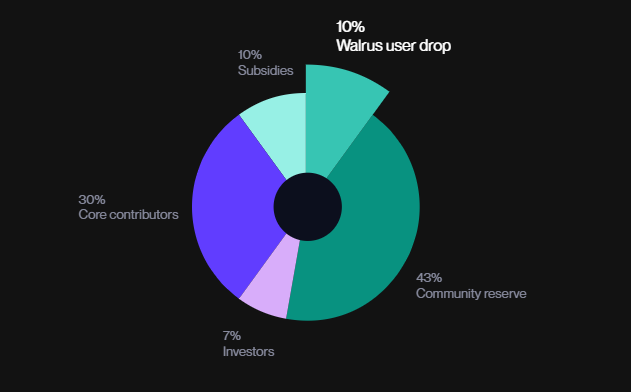
The WAL token plays a central role in the Walrus ecosystem, serving three primary functions:
1. Payment for Storage Services: Users pay WAL to store data on the Walrus network. The token acts as the medium of exchange between users and storage providers, enabling a decentralized marketplace for data storage.
2. Network Security via Staking: Storage node operators must stake WAL tokens to participate in the network. This staking mechanism helps align incentives and discourages malicious behavior. Users can also delegate WAL to trusted nodes and earn a share of the rewards, reinforcing the protocol's economic security.
3. Governance and Decision-Making: WAL functions as a governance token, allowing holders to vote on protocol upgrades, parameter changes, and other key decisions. This ensures that the community has a voice in how the protocol evolves over time.
Investor Opportunities in the Walrus Ecosystem
By exploring these avenues, investors can actively participate in the growth and success of the Walrus ecosystem.
Staking WAL: Passive Income Meets Protocol Resilience
Staking WAL tokens offers investors a unique opportunity to earn passive income while directly supporting the performance and decentralization of the Walrus storage network. When you stake, you're not just earning rewards, but you’re helping shape which storage nodes are selected to hold data, reinforcing the network’s reliability and fault tolerance.
Accessible Staking for Everyone
Staking WAL is simple and secure, whether you're a first-time user or an institutional participant. You can stake through the Walrus Staking App, which is compatible with wallets such as Martian, OKX, and Slush. For more advanced users, staking is also possible via CLI or direct interaction with Sui smart contracts.
Getting Started
To support your onboarding journey, Stakin offers a suite of step-by-step guides, including:
- How to Stake Walrus (WAL) with Slush Wallet
- How to Build Your Own Walrus Site
- Introducing Walrus: A Revolutionary Decentralized Storage Network
These resources make it easy to dive in, whether you're exploring the protocol or ready to start staking today.
Once staked, your rewards begin accruing after just one epoch. If you delegate your tokens before the midpoint of epoch e-1, rewards activate in epoch e. If you stake later, they begin in epoch e+1. The same schedule applies when unstaking and importantly, there are no slashing risks involved. You can monitor your delegation and rewards using Walruscan or reach out to the Stakin team for tailored support, whether you’re an individual user or a large-scale investor.
Participate in WAL Token Airdrops
Walrus has allocated 10% of its total token supply for community airdrops: 4% has already been distributed, with the remaining 6% reserved for future initiatives. Community members can increase their eligibility by participating in testnet activities, completing Galxe quests, or engaging with the Walrus Guild Academy.
However, as interest in WAL grows, so does the risk of impersonation and scams. Always verify airdrop campaigns through official Walrus channels (e.g., walrus.xyz, the official X/Twitter account, or Discord). Avoid connecting your wallet or signing transactions on suspicious links. If in doubt, ask in verified community forums before interacting with any airdrop claim tool.
Stay vigilant: legitimate airdrops will never ask for private keys, require upfront payments, or redirect you through unofficial domains.
Engage in Liquid Staking and DeFi Opportunities
Investors can utilize liquid staking platforms like Winter Walrus and Haedal to stake WAL tokens and receive liquid staking derivatives (e.g., wWAL, haWAL). These derivatives can be used to provide liquidity on decentralized exchanges such as Cetus, potentially earning additional rewards.
Contribute to Development and Community Initiatives
For those looking beyond passive income, Walrus offers opportunities to engage directly with protocol growth and ecosystem development. While contributions (such as funding development efforts or supporting community initiatives) may not yield immediate financial returns, they can position early backers to gain strategic visibility, build influence, or secure future collaboration opportunities.
Investors, developers, and community builders interested in hands-on involvement can contact the team directly at info@walruslabs.org to explore tailored roles or support pathways. Active contributors often stand out in early-stage ecosystems, especially as new incentive programs or ecosystem grants are rolled out.
Final Thoughts
The Walrus ecosystem introduces a powerful solution to one of Web3’s most persistent challenges: decentralized, scalable storage. Backed by industry giants, built on the Sui blockchain, and driven by a utility-focused token economy, Walrus presents both immediate and long-term opportunities for those seeking exposure to foundational Web3 infrastructure. Whether you're staking, participating in DeFi, or contributing to protocol development, now is the time to explore your role in shaping the future of the Walrus ecosystem.
DISCLAIMER: This is not financial advice. Staking, delegation, and cryptocurrencies involve a high degree of risk, and there is always the possibility of loss, including the failure of all staked digital assets. Additionally, delegators are at risk of slashing in case of security or liveness faults on some protocols. We advise you to do your due diligence before choosing a validator.
